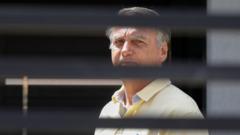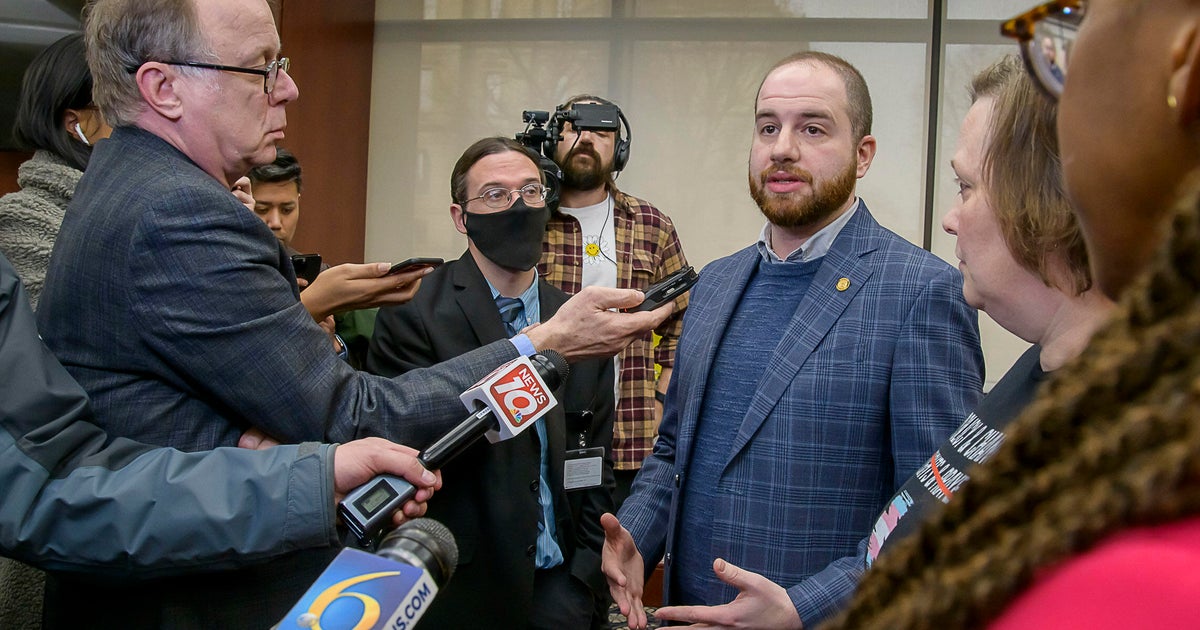What Led to Bolsonaro's Unprecedented Rise and Fall as President?

Published: 2025-09-12 12:54:27 | Category: world
This article explores the turbulent political journey of Jair Bolsonaro, Brazil's controversial former president, from his rise to power to his recent conviction for plotting a coup. Bolsonaro's presidency, marked by polarising policies and inflammatory rhetoric, has left an indelible mark on Brazil's political landscape. As he faces a lengthy prison sentence, questions arise about his potential influence and the future of Brazilian democracy.
Last updated: 08 October 2023 (BST)
Key Takeaways
- Jair Bolsonaro was recently sentenced to over 27 years in prison for coup plotting.
- His presidency was defined by polarising policies and a strong anti-establishment message.
- Despite his conviction, Bolsonaro's influence in Brazilian politics persists through his allies.
- The Brazilian political landscape remains fragile, with ongoing discussions about amnesty for Bolsonaro.
- His legacy raises concerns about the stability of Brazil's democracy and institutions.
The Rise of Jair Bolsonaro
Jair Bolsonaro's ascent to the presidency is a tale of a political outsider capitalising on Brazil's discontent. In an era marked by economic turmoil and political scandal, he emerged as a beacon for those disillusioned with traditional parties. His incendiary statements and military background resonated with many voters seeking radical change.
Bolsonaro's trajectory began in the late 1980s after a brief military career. He transitioned to politics, serving as a congressman for nearly three decades. His reputation was built on controversial remarks, including threats of violence against political opponents. Remarkably, he often defended Brazil's military dictatorship, which lasted until 1985, positioning himself as a figure of authority in a time when many were clamouring for change.
Political Landscape Pre-2018
Before Bolsonaro's election in October 2018, Brazil was engulfed in crisis. The country had experienced widespread protests against corruption, a significant recession, and the impeachment of President Dilma Rousseff. The fallout from the "Car Wash" investigation, which uncovered vast corruption networks involving numerous politicians, further disillusioned the public.
In April 2018, the former president Luiz Inácio Lula da Silva was imprisoned on corruption charges, although these charges were later annulled. With the political establishment in disarray, Bolsonaro saw an opportunity to galvanise support from frustrated citizens across various demographics, including the middle class, conservative evangelicals, and disillusioned voters from the Workers' Party (PT).
Bolsonaro's Presidential Campaign
Bolsonaro's campaign was unlike any Brazil had seen before, heavily relying on social media to bypass traditional media narratives. His messages resonated particularly with those fearful of crime and corruption. He advocated for a tough stance on crime, promising to empower police and military forces. This resonated with segments of society that were increasingly frustrated with rising violence.
On election day, his coalition proved formidable, leading to a victory that shocked many political analysts. Bolsonaro's presidency began with high hopes from his supporters, but it would soon be marred by controversies and crises.
Governance and Policies
Upon taking office, Bolsonaro's administration adopted a pro-business stance, aligning itself with the policies of the Trump administration in the United States. His cabinet was filled with military officials, reflecting his belief in strong, authoritative governance. However, this approach also drew criticism due to a lack of experience in federal administration.
One of the most notable aspects of Bolsonaro's presidency was his environmental policy. He rolled back regulations designed to protect the Amazon rainforest in favour of agribusiness interests. This led to a significant rise in deforestation, sparking international outrage and concern over Brazil's environmental commitments.
Response to the COVID-19 Pandemic
The COVID-19 pandemic presented Bolsonaro with one of his most significant challenges. He publicly downplayed the virus's severity, comparing it to a "little flu". His administration's reluctance to implement social distancing measures, promote mask-wearing, and procure vaccines resulted in Brazil facing one of the world's highest death tolls from the virus.
Reports suggest that over 700,000 Brazilians died of COVID-19 during his presidency, with many public health experts arguing that lives could have been saved with a more proactive response. Bolsonaro's scepticism towards vaccines and promotion of unproven treatments further alienated many citizens and health officials.
Conflict with the Supreme Court
Throughout his presidency, Bolsonaro's relationship with Brazil's Supreme Court deteriorated. His attempts to undermine the court's authority, particularly around COVID-19 measures and gun control policies, led to significant legal confrontations. The court, led by Justice Alexandre de Moraes, became a critical check on Bolsonaro's power, which he openly challenged.
In 2021, Bolsonaro's rhetoric escalated, with threats made against the court and accusations of treachery towards its judges. These tensions further inflamed an already polarised political climate in Brazil.
The 2022 Elections and Aftermath
The 2022 elections saw Lula, now free from legal challenges, return to the political arena. Bolsonaro's campaign this time was marked by accusations of potential electoral fraud, despite a lack of evidence. His insistence on paper ballots and rejection of electronic voting results set the stage for possible unrest following the election.
Ultimately, Lula won the presidency by a narrow margin. In the aftermath, Bolsonaro's supporters engaged in widespread protests, demanding military intervention and challenging the election results. This unrest culminated in the storming of key government institutions on 8 January 2023, drawing comparisons to the US Capitol riot.
Legal Troubles and Conviction
Following his departure to Florida and subsequent denial of involvement in the riots, Bolsonaro's legal challenges intensified. In April 2025, he was convicted on multiple charges, including plotting a coup and leading an armed conspiracy, resulting in a prison sentence that barred him from holding public office until 2060.
Despite these setbacks, Bolsonaro's political allies have begun discussing amnesty proposals, raising concerns about the stability of Brazilian democracy. Such moves could lead to significant political upheaval, particularly if Bolsonaro's supporters gain enough influence in Congress.
Future Prospects for Bolsonaro and Brazil
The political landscape in Brazil remains uncertain. Bolsonaro's conviction does not necessarily signify the end of his influence. His allies' push for amnesty reflects ongoing divisions within Brazilian society, with many still supporting his vision for the country.
As Brazil moves forward, the potential for political crises looms large. The Supreme Court's authority may be tested, and any attempts to grant Bolsonaro amnesty could lead to significant constitutional challenges. The stability of Brazil's democracy hangs in the balance, with many questioning the future direction of the nation.
Conclusion: The Ongoing Impact of Bolsonaro's Presidency
Jair Bolsonaro's presidency has left a profound impact on Brazil, reshaping its political landscape and igniting fierce debates about democracy, governance, and authority. As discussions of amnesty swirl, the question remains: can Brazil heal from the divisive legacy of Bolsonaro, or are the fractures in its democracy too deep to mend?
FAQs
What were the main controversies during Bolsonaro's presidency?
Bolsonaro's presidency was marked by several controversies, including his handling of the COVID-19 pandemic, environmental policies leading to increased deforestation, and conflicts with the Supreme Court over his attempts to undermine judicial authority.
What led to Bolsonaro's conviction?
Bolsonaro was convicted for plotting a coup and leading an armed conspiracy, actions that were deemed threats to Brazil's democratic institutions following the tumultuous events surrounding the 2022 elections.
What is the current political climate in Brazil?
The political climate in Brazil remains highly polarised, with ongoing discussions about potential amnesty for Bolsonaro. His supporters continue to exert influence, raising concerns about the future stability of Brazil's democracy.
How has Bolsonaro's presidency affected Brazil's environment?
Bolsonaro's administration rolled back environmental protections, leading to significant increases in deforestation in the Amazon and other critical areas, sparking international criticism and concern for climate change efforts.
What is the significance of the Supreme Court in Bolsonaro's governance?
The Supreme Court became a crucial check on Bolsonaro's power, particularly in response to his controversial policies during the pandemic. The court's rulings often countered his attempts to undermine democratic norms.
Brazil's political future remains uncertain, with the spectre of Bolsonaro continuing to loom large. How will this impact the nation moving forward? #BrazilPolitics #BolsonaroLegacy #DemocracyInDanger



